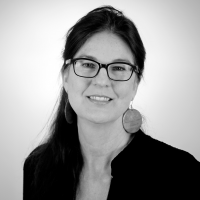Local and Regional Adaptation Strategies to Climate Change: Sharing Good Practices and Comparative Analysis between the U.S. and Germany
- Presentation
- Date
-
- Location
- Washington, DC, United States
- Panel discussion
On 7 December 2012, the Policy Studies Organization hosted the "Dupont Summit 2012: Pressing Issues amid the Political Maelstrom". The fourth annual Summit focused on the dissemination of scientific and technological information to researchers and decision-makers. Energy and climate change issues were highlighted as a theme this year. Dr. Grit Martinez, for Ecologic Institute Berlin, and Tanja Srebotnjak, for Ecologic Institute’s San Mateo office, were panelists on a session entitled "Local and Regional Adaptation Strategies to Climate Change: Sharing Good Practices and Comparative Analysis between the U.S. and Germany". Dr. Martinez and Dr. Srebotnjak were joined by Jeff Allenby of the Chesapeake Conservancy.
The event was organized by the German project RADOST ("Regional Adaptation Strategies for the German Baltic Sea coast") with participation of RADOST’s advisory board member Prof. Donald Boesch, President of the University of Maryland Center for Environmental Science.
In her opening comments Dr. Martinez highlighted that super storm 'Sandy' has given a stark vision of a possible future where storm surge disaster frequently could threaten people in coastal cities and regions. Accordingly, the need for US authorities to examine solutions of coastal cities like Rotterdam or Hamburg where sea walls, flood zones and floating city blocks have been conceived has already emerged. Despite such European examples of 'coastal hardware measures' numerous knowledge and expertise has been also generated in the US by local place-based research and coastal communities coping with the impacts of sea level rise, land use change, storm water and non-point source pollution.
Dr. Srebotnjak presented a current assessment of climate adaptation planning in the San Francisco Bay Area. Her analysis examined on-going challenges in coordinating efforts between different jurisdictions and included thoughts on coming challenges the region will need to address and how various governmental entities could work together to approach them. Dr. Srebotnjak’s presentation set the stage for a comparison of the efforts and challenges faced in the Chesapeake Bay area and the Baltic Sea basin. The former was presented by Mr. Allenby, who highlighted the progressive way in which Maryland is engaged in climate change adaptation activities. Referring to the latter region, Dr. Martinez offered comments on the state of research and implementation examples under the RADOST project and laid out its future national and transnational initiatives. Policymakers in the US and Europe stand to make more sound decisions about climate adaptation by learning from on-going research projects, especially when drawing from a larger set of examples by looking also at what is transpiring on the other side of the Atlantic.



